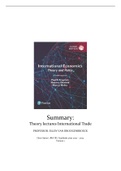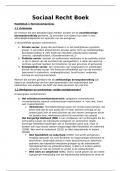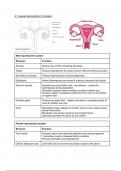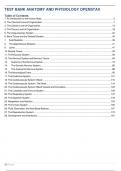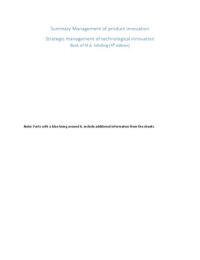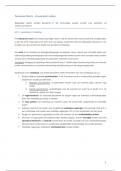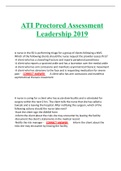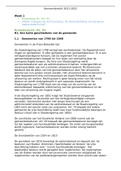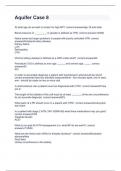Theory lectures International Trade
PROFESSOR: ELLEN VAN DROOGENBROECK
Gino Aytas | 1MA IB | Academic year 2021 – 2022
Version 1
,Practical information:
The final grade is composed out of a written exam representing 85% of the mark,
supplemented with a research paper representing 15% of the mark.
1. Introduction to International Trade
The global GDP amounts to 84.7 trillion dollars. About
26% (or 21.7 trillion dollars) of this was imported and
exported, sold across national borders.
The amount of imports and exports differs from country
to country. Here we see it as a percentage of national
income. In the US it is about 15%, whereas in Belgium it
almost reaches 90%.
In this course we will answer 3 important questions:
I. Who gains from trade?
II. Who sells what to whom?
Pattern of trade
III. How much trade?
Trade protection
On the one hand we will look at Trade Theory and Trade Policy.
Regarding Trade Theory there are two basic reasons why a country engages in
international trade:
Because they are different from each other
To achieve economies of scale in production
For Trade Policy we will look at: Instruments of Trade Policy, theory & practice and
controversies.
2. Chapter 2: World Trade – An Overview
The major trading partners of the US are Mexico, Canada and China.
PAGE 1
,It becomes evident that besides the geographic proximity also the GDP/economy size of
the country you are trading with is of importance.
This graph shows this. The data shows that there is a
strong correlation between the size of a country its
economy (measured via its GDP) and the volume of
trade with the US.
Germany for example has a large economy,
accounting for about 20% of EU GDP and is also
providing 25% of the trade between the US and the
EU.
In general it has been found that the value of trade between any two countries is
proportional, other things equal, to the product of the two countries’ GDPs and
diminishes with the distance between the two countries.
This is captured by the Gravity Model of World Trade:
1
𝑇𝑇𝑖𝑖𝑖𝑖 = 𝐴𝐴 ∗ 𝑌𝑌𝑖𝑖𝑎𝑎 ∗ 𝑌𝑌𝑗𝑗𝑏𝑏 ∗
𝐷𝐷𝑖𝑖𝑖𝑖𝑐𝑐
With:
- Trade between country i and country j
- Constant value: 𝑨𝑨
- GDP Country i: 𝒀𝒀𝒂𝒂𝒊𝒊
- GDP Country j: 𝒀𝒀𝒃𝒃𝒋𝒋
- Distance between i and j: 𝑫𝑫𝒄𝒄𝒊𝒊𝒊𝒊
Exponents a, b and c are introduced to ensure the usability of the data. It is more correct
but is sometimes assumed to be 1 and thus ignored for simplicity.
Large economies (high GDP) tend to spend large amounts on imports and attract large
shares of other countries spending.
Looking back at the previous scatter plot we see that the data does not fit perfectly, this is
one of its main uses. It helps to identify anomalies in trade from the “norm”. If we detect
such an anomaly we can seek possible explanations for its occurrence.
For example there is more trade with the US coming from Belgium and the Netherlands
than the Gravity Model would predict. This is due to these countries harbouring some of
Europe its most important ports such as Antwerp and Rotterdam.
As previously discussed the distance also heavily impacts the trade. On average a 1%
increase in distance between 2 countries, there is a decrease of 0.7% in trade between
PAGE 2
, these countries. This is due to transport cost, but also due to less tangible factors such as
cultural differences and personal contact.
Another factor is the existence of Free Trade Agreements. When there is one between
countries there are no barriers to trade and goods are not subject to customs tariffs. There
trade agreements often solely end all formal barriers, but national borders are still very
important. There is much more trade between regions of the same country (Ex. States in
the US), then between equivalent situations of regions in different countries (Ex. US and
Canada).
This map shows just that. The Canadian province Alberta is the same distance from
British Columbia as it is from Washington state.
However the trade amongst
these different Canadian
provinces is higher than the
trade between British Columbia
and the different US states.
Thus borders have a negative
effect on trade.
Over the past 70 years there has been an evolution
of International Trade. In general technological
evolutions in transportation and communication
have fostered trade. However political forces can
outweigh these beneficial effects.
This graph depicts this, the higher the better.
World trade grew rapidly in the decades leading
up to WWI, but fell steeply after (1930).
Only by 1970 we reach the initial level of 1914.
PAGE 3



